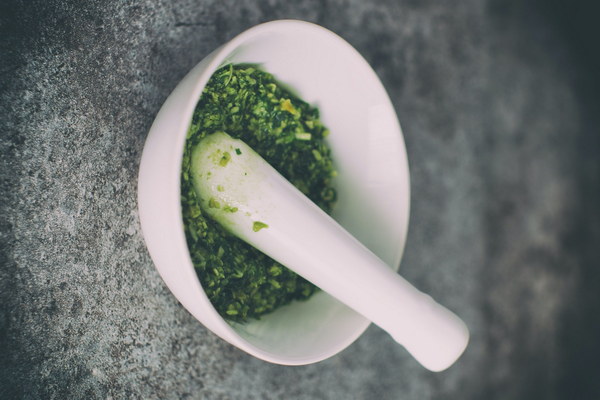Spicy Flavors for a Healthy Stomach Unveiling the Surprising Benefits of Spicy Foods for Digestive Health
In recent years, the notion that spicy foods are detrimental to the stomach has been widely circulated. However, a growing body of research suggests that consuming spicy foods in moderation can, in fact, promote a healthy stomach. This article delves into the fascinating benefits of incorporating spicy foods into your diet and how they can contribute to a stronger digestive system.
The Power of Capsaicin
At the heart of spicy foods lies the compound capsaicin, a potent substance that provides the heat and flavor. Capsaicin has been shown to possess several properties that can benefit the digestive system. One of the primary ways it aids digestion is by increasing the production of stomach acid. This acid is crucial for breaking down food and absorbing nutrients effectively.
Stimulating Saliva Production
Spicy foods stimulate the production of saliva, which is essential for digestion. Saliva contains enzymes that begin the process of breaking down food in the mouth. By promoting saliva production, spicy foods can help ensure that the digestive process starts off on the right foot.

Improving Circulation
Capsaicin has been found to improve blood circulation, which is beneficial for the digestive system. Enhanced circulation ensures that the stomach receives an adequate supply of oxygen and nutrients, allowing it to function optimally. This can lead to improved digestion and a reduction in symptoms such as bloating and gas.
Reducing Inflammation
Inflammation is a common issue in the digestive system, leading to discomfort and pain. Capsaicin has been shown to have anti-inflammatory properties, which can help reduce inflammation in the stomach. By incorporating spicy foods into your diet, you may experience a decrease in gastrointestinal discomfort and a more comfortable digestion process.
Promoting the Growth of Good Bacteria
Spicy foods can also promote the growth of beneficial bacteria in the gut. These bacteria, known as probiotics, play a vital role in maintaining a healthy digestive system. By encouraging the growth of probiotics, spicy foods can help prevent issues such as diarrhea, constipation, and bloating.
How to Incorporate Spicy Foods into Your Diet
Now that you're aware of the benefits of spicy foods for the stomach, you might be wondering how to incorporate them into your diet. Here are a few suggestions:
1. Start Small: If you're new to spicy foods, begin by adding small amounts of heat to your meals. Gradually increase the amount of spice as your tolerance improves.
2. Experiment with Varieties: There are numerous spices and peppers to choose from, each with its own unique flavor profile. Experiment with different types to find your favorites.
3. Use Spices: Incorporate spices like cayenne, chili powder, or cumin into your cooking. These spices are rich in capsaicin and other beneficial compounds.
4. Add Fresh Peppers: Fresh peppers, such as jalapeños or habaneros, can be added to salads, sandwiches, or as a topping for dishes like pizza or tacos.
5. Consume Spicy Foods Regularly: Make spicy foods a regular part of your diet to experience the full benefits. Aim for a moderate amount, such as one to two servings per week.
In conclusion, spicy foods have been unjustly maligned for their impact on the stomach. However, the evidence suggests that incorporating spicy foods into your diet can actually promote a healthy stomach and digestive system. By including capsaicin-rich foods in moderation, you may enjoy a more comfortable digestion process and improved overall health.









